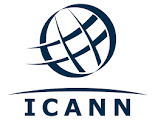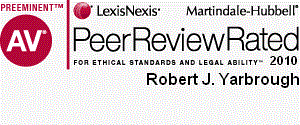Newsletter Issue 61 - March 2014
In this issue:
Creating copyrights
New top level domain names
Google street view
Ask Dr. Copyright ...
Dear Doc:
A magazine editor has told me that if a magazine releases an issue
before its copyright date, the magazine will lose its rights. I
can't believe that this is the law. Please tell me who's right.
Signed,
Confused Author
Dear Confused:
You're less confused than your editor! Under international copyright
law, known as the Berne Convention (no, it's not a meeting of
arsonists) a "work" is protected by copyright automatically from the
moment it is created. There are no complicated rules. Most
countries, including the United States, are a part of this treaty,
so copyright protection extends to most of the world in this way.
Each country is still allowed to create its own rules in addition to
those of the treaty, so, for example, in the United States, even
though you have an automatic copyright, you must register your work
in the Copyright Office of the Library of Congress in order to
enforce your rights in court, and there are other benefits of early
registration as well. Registration is a simple process, and the fee
is quite low. You may not, however, just send yourself a registered
letter! (That is as legally effective as shaking a rattle to cure
the flu.)
Under U.S. law, you may put a copyright notice on your work to show
the world that you have rights. The law says that this notice is ©,
the year of creation or publication, and some identifier of the
copyright owner. You may also use the word "Copyright" or the
abbreviation "Copr." You may NOT use a ( C ) - that's not part of
the law. Under the laws of some countries, it also helps to use the
phrase, "All Rights Reserved."
Copyright extends to more than just written works, as well. You can
protect music, video, computer code, works of visual art, and even
performances. Each type of work has its own rules and registration
forms, so be sure to check www.copyright.gov and with your IP
counsel for the right information. Registering copyrights should be
an automatic part of the business process for just about every
business.
When it comes to simple and effective protection of intellectual
property, you just can't beat copyright. By now, the Doc knows that
you have lots more questions. Just call one of the attorneys at
LW&H. They do copyright, trademark, patent, trade secrets, and lots
of other stuff to protect rights of creative endeavors.
The Doc
New gTLD's ... New Burdens
You may recall that we reported about "one of the biggest changes
in the Domain Name System" was about to be implemented by ICANN,
which was introducing hundreds of new top level domains that could
"end with almost any word in any language." So, instead of such
dependable and familiar domains like "nike.com" and "nikon.com", you
could have "nike.shoes" or "nikon.camera." Pretty cool, right?
Well, maybe not so much for trademark owners.
The roll out of the new domains has been slow-paced, however, as
registrars come on line with the new domains (after paying hefty
application and registration fees) some trademark experts worry that
the explosion of top level domains places too much burden on brand
owners to police their marks and purchase unwanted domains for the
sole purpose of keeping them out of the hands of would-be cyber
squatters and infringers. Francis Gurry, the head of the World
Intellectual Property Organization (WIPO), is on record of stating
that the impact upon trademark protection is "likely to be
significant and disruptive." SecurityWeek.com quoted Gurry:
'The opportunity for misuse of trademarks expands exponentially,'
said Gurry, noting that registering a domain name is a cheap,
automatic procedure that takes a matter of seconds and does not have
a filter to examine whether there is a trademark conflict."
According to the same SecurityWeek.com article, in 2013, 2,585 cases
involving 6,191 domains were were filed with WIPO, which is one of
the arbiters in charge of domain disputes. It is currently hearing
its first case concerning a new gTLD in which a German company,
Canyon Bicycles GmbH, is objecting to a Dutch registrant of
canyon.bike. The German company is a worldwide distributor of
bicycle products and is involved in numerous international cycling
events. The registrant of the domain is an individual based in the
Netherlands who states that he is a cyclist and web designer in the
cycling industry. The disputed domain name points to a website
parking page provided by the Registrar which, according to the
screenshot provided by the Center, features sponsored listings
including one entitled "Mountainbikes". To learn more about the
case visit WIPO's website.
This case may foreshadow many more similar disputes. We'll keep you
posted.
Google Street View infringes patent 
Google Street View is the popular feature of Google Maps that
allows you to see panoramic photographs of, well, pretty much
anywhere with different orientations and magnifications. The
photographs are stitched together in software to allow the viewer to
navigate through a virtual representation of the real world. You
may have seen the Google photography cars driving around with an
array of cameras, taking pictures of your neighborhood.
Here's the story: back in the year 2000, Enrico Bernado and
Luis Goncalves were Ph.D candidates at CalTech. They attached
cameras and a GPS device to Mr. Bernado's car and drove around
Pasadena taking photographs.They also developed software to stitch
the photographs together, creating panoramic views and allowing a
person to navigate through a virtual representation of the real
landscape. The results were available through the City of
Pasadena's website.
Drs. Bernado and Goncalves founded Vederi, LLC and were awarded four
patents for their work.
Vederi sued Google for patent infringement
for its Street View product. The trial court found no infringement
based its interpretation of the claims of the patents, but the
Federal Circuit Court reversed and sent the case back to the trial
court. Street View is still available, so we suspect that Google
and Vederi LLC reached an accomodation, since patent litigation is a
license negotiation by another name.

